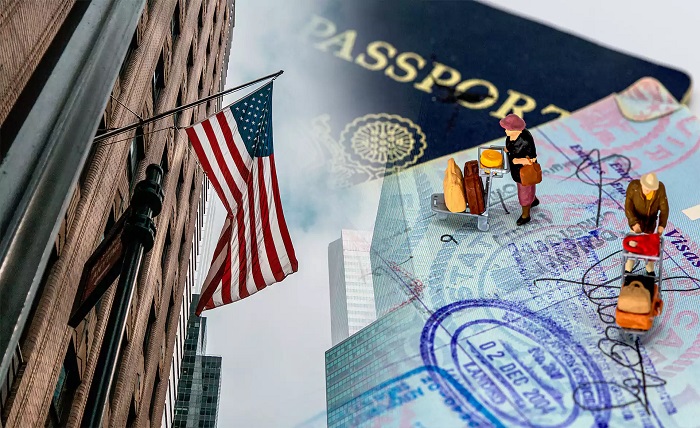
America Grants Work Permits for Indian Spouses of H-1B Visa Holders
The United States has long been a sought-after destination for professionals from around the world, and Indian immigrants make up a significant portion of this skilled workforce. The H-1B visa program allows U.S. employers to hire foreign workers in specialty occupations, and it has been instrumental in attracting talented individuals to contribute to the American economy. However, until recently, the spouses of H-1B visa holders faced limitations when it came to pursuing their own careers. In a progressive move, America has now granted work permits for Indian spouses, opening up new opportunities for them to thrive professionally.
Understanding H-1B Visa
The H-1B visa is a non-immigrant visa category that allows U.S. employers to temporarily employ foreign workers in specialty occupations. It is typically granted to individuals with specialized knowledge or advanced degrees in fields such as technology, engineering, finance, or medicine. This visa has been instrumental in addressing skill shortages in various industries and has contributed significantly to the growth and innovation of the U.S. economy.
H-1B Visa Holders’ Spouses
Previously, the spouses of H-1B visa holders were issued H-4 visas, which allowed them to accompany their partners to the United States but did not permit them to work. This restriction often meant that highly skilled and educated individuals had to put their careers on hold, leading to frustration and underutilization of talent.
America’s Decision to Grant Work Permits
Recognizing the need to address this issue and empower H-1B visa holders’ spouses, America has made a significant decision to grant work permits to eligible individuals on H-4 visas. This policy change acknowledges the potential and capabilities of these spouses and aims to provide them with equal opportunities to contribute to the U.S. workforce.
Benefits for Indian Spouses
The granting of work permits to Indian spouses of H-1B visa holders brings numerous benefits. Firstly, it allows them to pursue their own careers and fulfill their professional aspirations. This not only boosts their self-confidence but also provides financial stability for their families. Additionally, it fosters a sense of independence and promotes gender equality, as both partners can now actively contribute to the household income.
Eligibility Criteria
To be eligible for a work permit, Indian spouses on H-4 visas need to meet certain requirements. They must have a valid H-4 visa, be married to an H-1B visa holder, and their partner must have an approved immigrant visa petition or have been granted an extension beyond the six-year H-1B limit.
Application Process
The application process for obtaining a work permit involves submitting the necessary documentation, such as proof of marriage, valid passports, and other supporting materials. The U.S. Citizenship and Immigration Services (USCIS) oversees the application process and reviews each case to determine eligibility.
Employment Opportunities
With work permits in hand, Indian spouses of H-1B visa holders gain access to a wide range of employment opportunities across various industries. They can seek employment in their field of expertise, contribute their skills, and build successful careers in the United States. This policy change not only benefits individuals and their families but also contributes to the overall growth of the American economy.
Impact on Families
The ability of Indian spouses to work in the United States has a positive impact on their families. It reduces financial strain, allows for better planning of expenses, and improves the overall quality of life. Moreover, it strengthens family bonds as both partners share the responsibility of contributing to the household income and achieving common goals.
Economic Impact
Granting work permits to Indian spouses of H-1B visa holders also has significant economic implications. It leads to increased productivity and innovation as more skilled professionals enter the workforce. Additionally, it boosts consumer spending and stimulates economic growth, benefiting local businesses and the economy as a whole.
Support and Opposition
The decision to grant work permits to Indian spouses of H-1B visa holders has received widespread support from various stakeholders, including advocacy groups, employers, and individuals directly affected by the policy change. It is seen as a positive step towards harnessing the potential of highly skilled immigrants. However, there are also concerns expressed by some who worry about potential job competition and its impact on the domestic workforce.
Future Implications
The policy change regarding work permits for Indian spouses of H-1B visa holders sets a positive precedent for immigration policies in the United States. It reflects a more inclusive approach that recognizes the contributions and talents of immigrants and their families. It remains to be seen whether similar opportunities will be extended to spouses of visa holders from other countries in the future.
Conclusion
America’s decision to grant work permits to Indian spouses of H-1B visa holders marks a significant step towards providing equal opportunities and empowerment. This policy change not only benefits the individuals directly affected but also contributes to a more inclusive and diverse workforce. It recognizes the importance of utilizing the talents of highly skilled individuals and promoting gender equality. As the global workforce continues to evolve, such progressive policies become crucial for attracting and retaining skilled professionals who can drive innovation and economic growth.




